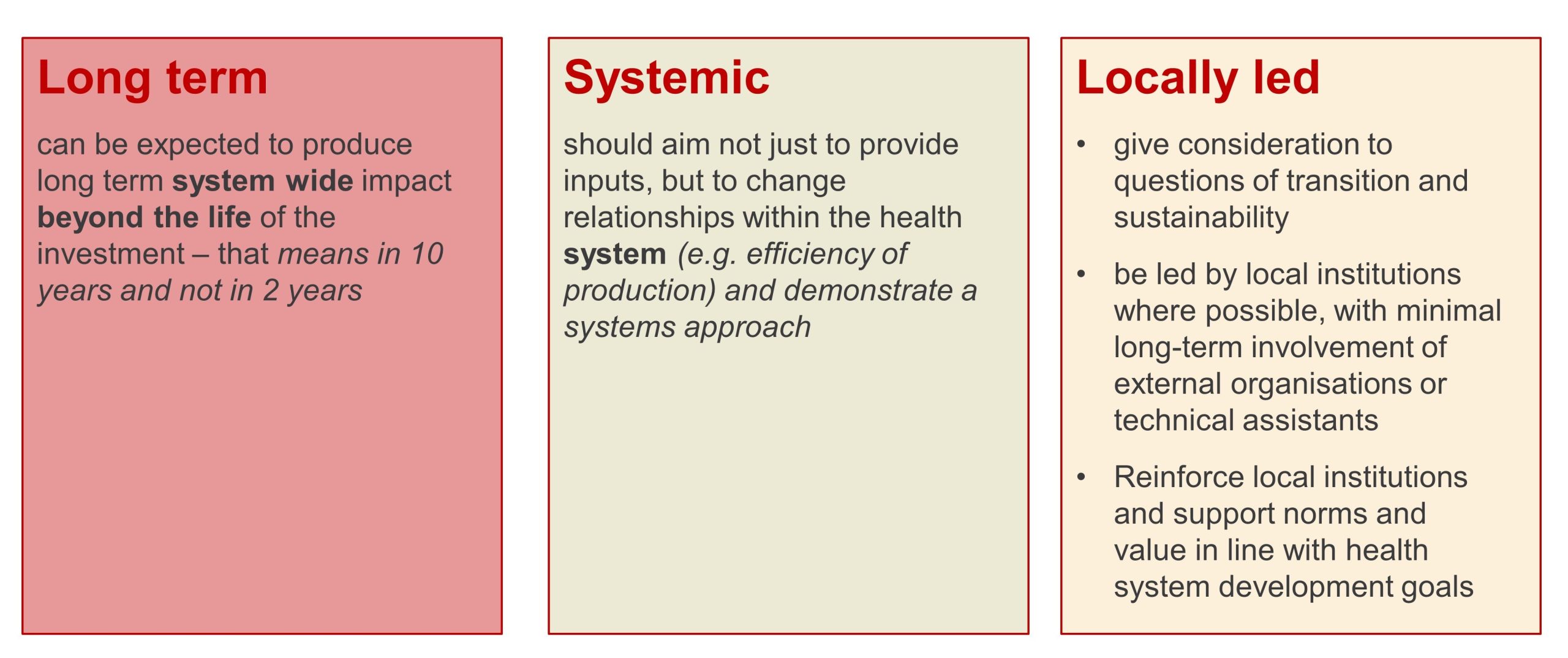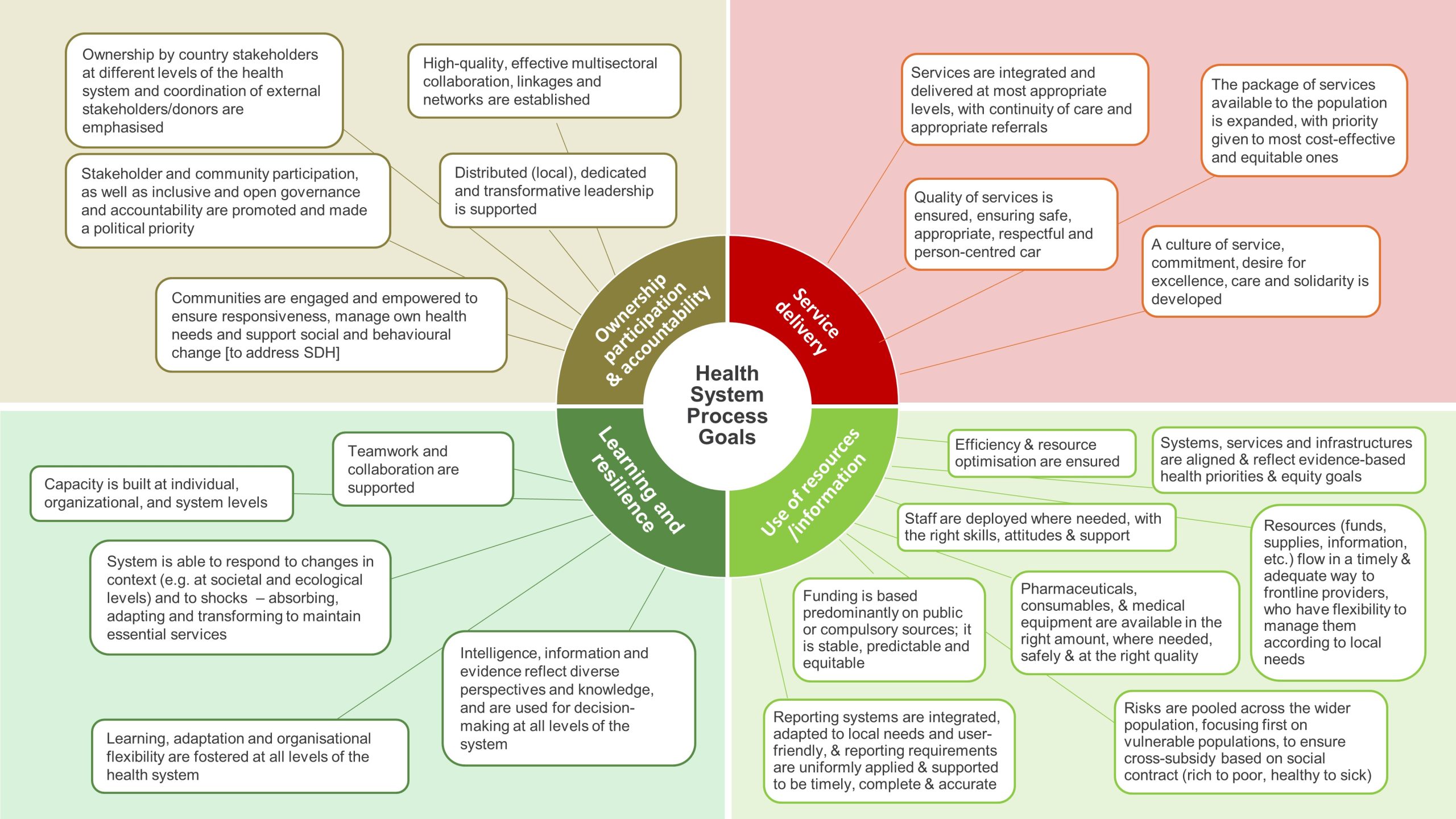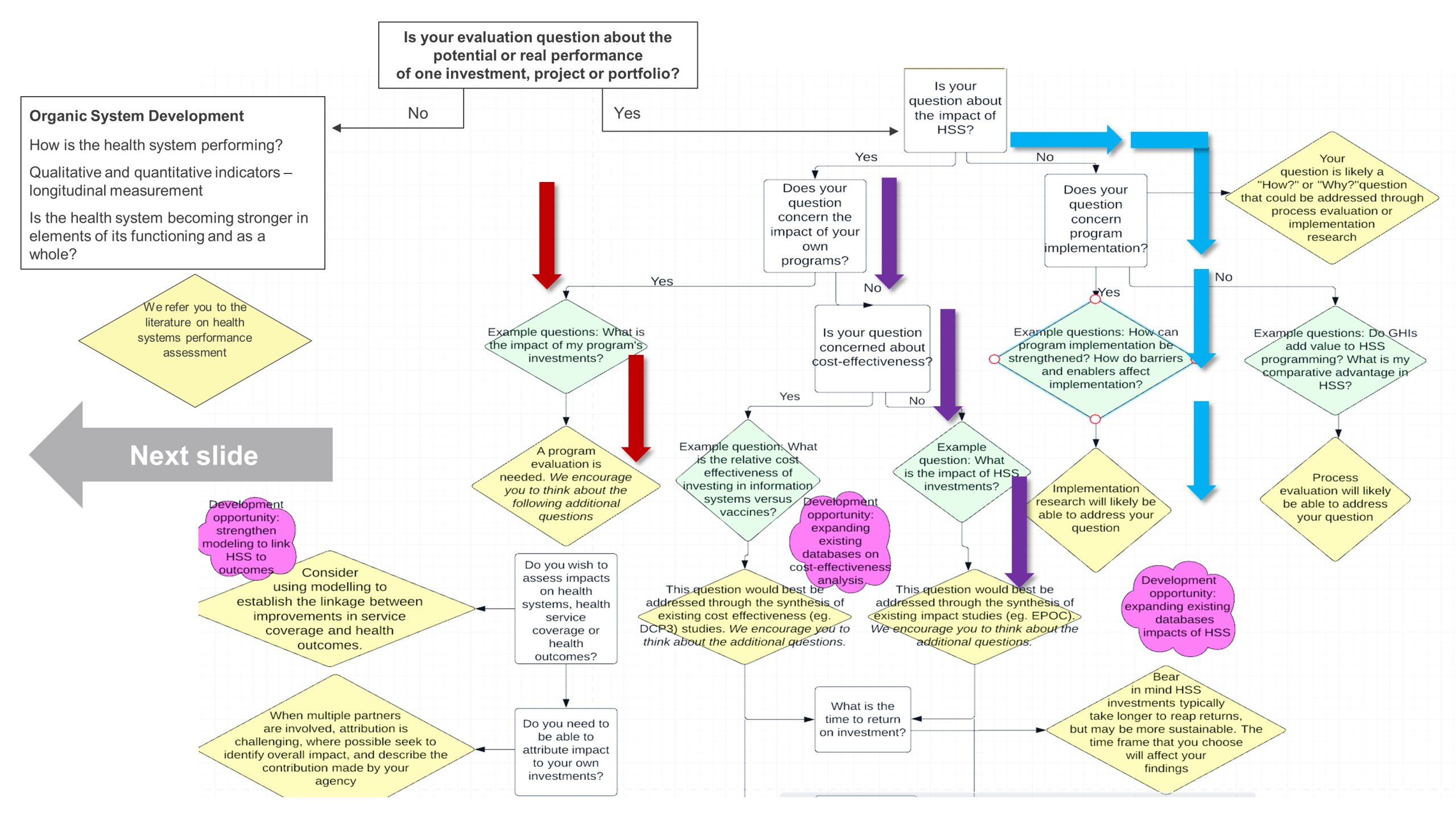
Improving conceptualisation and evaluation of health system strengthening
NB. Text versions of the diagrams featured in this case study can be found here (with the exception of figure 3)
What problem is being addressed?
There is a lack of clarity among international stakeholders about how health system strengthening (HSS) is defined, conceptualised, measured and evaluated. This undermines the development of a strong evidence base and effectively designed interventions. Many interventions have taken narrow or “vertical” approaches to health interventions and policy which undermine health systems as a whole and violate the principle of ‘doing no harm’. HSS has become a contested concept, particularly in relation to the investments of the global health initiatives [opens new tab], such as the Global Fund for AIDS, TB and Malaria (GFATM), and GAVI, the vaccine alliance. Fragile states are particularly at risk of these vertical approaches due to their dependence on development assistance for health.
What did we do?
2016: Sophie Witter of Queen Margaret University/ReBUILD led a review of the GFATM’s investments in HSS, or Resilient and Sustainable Systems for Health (RSSH) as it is called by GFATM, in Challenging Operating Environments (COEs); this review (read it here – opens new tab) proposed reforms to operational aspects of RSSH in COEs and how performance was assessed.
2018: ReBUILD (Sophie Witter and Tim Martineau of LSTM/ReBUILD) led a literature review for Department for International Development (DfID – now FCDO) of ‘what works for HSS’, together with Resyst (read it here). This review highlighted the contested nature of HSS and the variation in how it is assessed. As well as summarising the evidence on effectiveness, it proposed better tools and developed a framework for thinking about what a ‘strong’ health system is.
2019: This review was presented to health advisers at DfID. The review was later updated after COVID-19 for the UK’s Foreign, Commonwealth and Development Office (FCDO).
2021: Sophie Witter chaired a ReBUILD webinar on HSS, which included representatives of FCDO, the Alliance for Health Policy and System Research (AHPSR), the Global Fund and other important stakeholders to widen the debate about how we operationalise the term.
2021: Sophie Witter represented academia at the UK ministerial panel to launch ‘Leaving no-one behind: Strengthening health systems and ending preventable deaths to achieve health for all’, December 2021.
2021-2: The Gates Foundation reacted to the call for better evaluation of HSS (in the 2019 evidence review) by commissioning ITAD to lead an international collaborative on HSS evaluation (HSSEC) [opens new tab]. Sophie Witter was co-chair of Working Group 1 on tools and methods, which Maria Bertone (QMU/ReBUILD) contributed to, while HERDi also represented ReBUILD in Working Group 2 (country perspectives). All major funders of HSS were represented, including FCDO, USAID, GFATM, GAVI, GFF, World Bank, the Gates Foundation, WHO/AHPSR. The HSSEC included 42 members, 28 organisations and 17 countries. A common definition of HSS was proposed (see Figure 1 below).
Figure 1. HSS definition agreed by HSSEC (Text versions of the diagrams featured in this case study can be found here (with the exception of figure 3))

Under the HSSEC, a number of important tools were produced, including a more developed set of ‘process goals’ [opens new tab] for assessing HSS (see Figure 2), which are reported to be being used by a USAID partner now undertaking HSS evaluation.
Figure 2. Health process goals (goals for a ‘strong’ health system) (Text versions of the diagrams featured in this case study can be found here (with the exception of figure 3))

Other useful tools included an algorithm to assist with HSS evaluation choices (see Figure 3).
Figure 3. Thinking through HSS evaluation [click image to see larger version]
Importantly, all major funders signed up to better working practices in this area (Figure 4).
Figure 4 HSSEC principles (Text versions of the diagrams featured in this case study can be found here (with the exception of figure 3))

2022: ReBUILD guided a K4D evidence brief on HSS for FCDO, which was launched in September 2022; and supported the development of an Action for Global Health paper on HSS in Fragile and Conflict-Affected Settings (FCAS) [opens new tab] which extensively draws on empirical evidence produce by ReBUILD and which was presented at a panel in November.
2023-24: We are following up this year with work on the development of better indicators for monitoring HSS (with FCDO) and on developing case studies of HSS from FCAS settings, working with Health System Global’s Thematic Working Group on Health Systems in FCAS [opens new tab], which Maria Bertone vice-chairs.
Impact
Researchers from ReBUILD have been able to influence how HSS is defined and improve how it is designed and tracked, although follow up work with major funders and implementing partners, including international NGOs, is still needed.
Thinking from this work is feeding through into a current initiative to potentially reform the global health initiatives, which are major funders of systems components in FASP settings in particular. QMU team members of ReBUILD are part of the research consortium shaping that agenda [opens new tab].
Further information
There are other ReBUILD for Resilience case studies here
